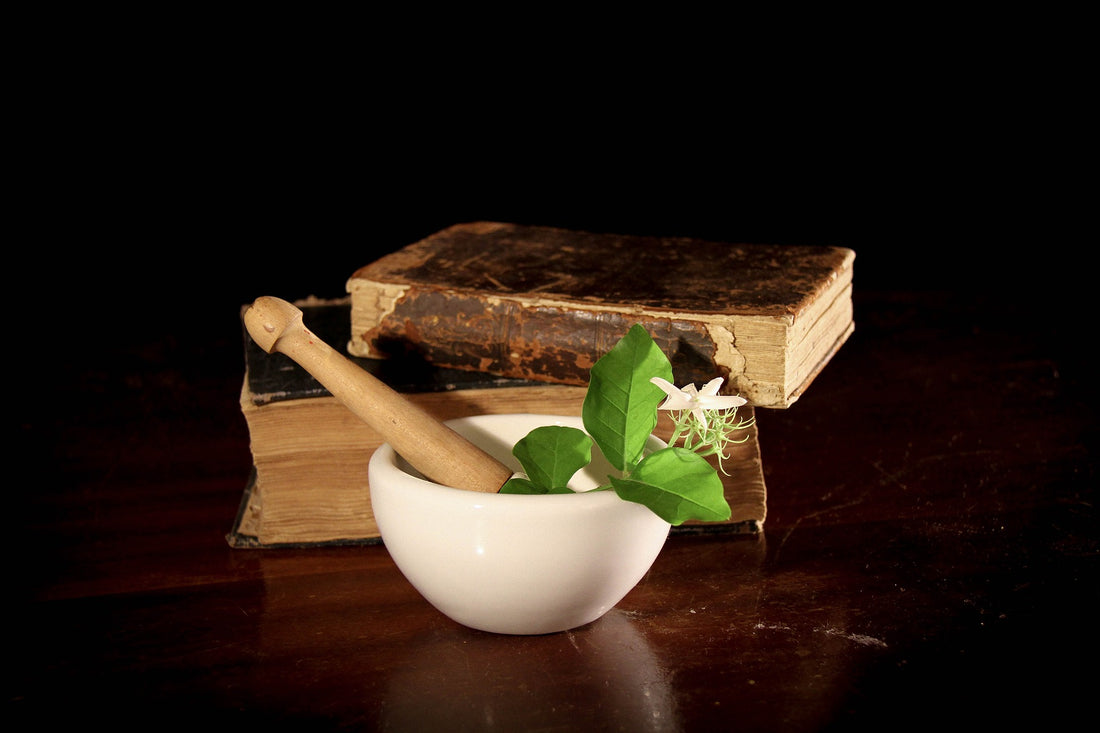When you're feeling ill, your whole world seems to slow down as you can't accomplish as much with each day as you hoped you could. Thankfully, many natural Ayurvedic herbal remedies can get you back to fully functionating quickly. We list here the 5 best Ayurvedic remedies for colds and coughing.
1. Tulsi
Tulsi, also known as holy basil, is related to its cooking counterpart. Tulsi leaves are pale green in appearance and somewhat fuzzy in texture. Tulsi has a long history of being used as traditional medicine in China and India.
Tulsi increases antibody production to protect against the onset of infection. Tulsi also can help soothe the airways by acting as an expectorant for congested mucus.
How to Use Tulsi
Tulsi is a main ingredient in some over-the-counter herbal remedies. The Tulsi leaves can be chewed in the morning to help boost immunity. Tulsi can also be mixed into home remedy called a kadha or into hot tea.
Tulsi Kadha
1. Wash your Tulsi leaves thoroughly.
2. Boil water and add the Tulsi leaves.
3. Add 1 teaspoon of grated ginger and a few peppercorns.
4. Boil the mixture for 10 minutes
5. Add a pinch of black salt and squeeze in the juice from half a lemon.
6. Strain and drink warm.
Tulsi Tea
1. Add fresh Tulsi leaves to 1.5 cups of water.
2. Boil on medium for 10 minutes.
3. Strain the tea and add lemon juice, mix well.
4. Drink warm.
2. Ginger
Ginger has been used in traditional medicine for thousands of years and is a well-known Ayurvedic remedy for cold and cough. It is equally affective as fresh ginger or in powdered ginger form especially when taken with honey. Ginger also can soothe a sore throat due to its anti-inflammatory properties.
How to Use Ginger
Ginger can be made into tea for an affective cough and cold remedy. It can also be taken directly in a grated form with some honey.
Ginger Tea
1. Add slices of ginger along with tea into boiling water.
2. Allow to simmer for several minutes before straining.
3. Pour into a cup and top with honey.
Ginger and Honey
Simply add grated ginger to a tablespoon of honey and consume. Add black pepper for additional effect.
3. Honey
Honey has many antimicrobial properties which makes it ideal for easing a sore throat and can act as an effective cough suppressant. Honey relieves chest congestion by loosening thick mucus thus allowing the user to reduce their wet cough.
How to Use Honey
Honey can be taken directly by a teaspoonful at bedtime to reduce the intensity of nighttime coughing. Continue use until the benefit has diminished.
Honey in Ginger Juice
Take 1 teaspoon honey and add to 1 teaspoon of ginger juice. Add 1 pinch of black pepper and take twice a day.
4. Mulethi
 Mulethi, also known as, licorice root is a perennial herb that has reported properties as an expectorant in traditional medicine. It can help clear excess mucus from the upper and lower airways. Due to its elevated sugar content, ingesting too much can cause fluid retention and hypertension (high blood pressure).
Mulethi, also known as, licorice root is a perennial herb that has reported properties as an expectorant in traditional medicine. It can help clear excess mucus from the upper and lower airways. Due to its elevated sugar content, ingesting too much can cause fluid retention and hypertension (high blood pressure).
How to Use Mulethi
Mulethi powder can simply be added to warm water and taken directly twice a day. It can also be mixed into tea or kadha.
Mulethi Tea
1. Take a small piece of Mulethi root and add to boiling water.
2. Add grated ginger and let simmer for about 5 minutes.
3. Add a tea bag and drink twice a day.
Mulethi Kadha
1. Take 1/4 teaspoon of Mulethi powder with a punch of cinnamon powder, black pepper powder, and a few Tulsi leaves.
2. Add to 1 cup of boiling water. Let simmer for 5 minutes.
3. Transfer to cup and add 1 teaspoon of honey.
4. Drink twice a day.
5. Cinnamon
Cinnamon has many health benefits, cold and cough relief are among them. It's also very affective against a sore throat due to it's anti-inflammatory properties. Cinnamon is known to have antiviral effects which helps fight against viruses known to cause the common cold.
How to Use Cinnamon
Cinnamon can be taken directly with a bit of honey or mixed into a tea.
Cinnamon with Honey
Cinnamon Tea
1. Make a cup of black tea as you prefer it.
2. Add a pinch of cinnamon powder.
3. Drink 2 to 3 times a day.







